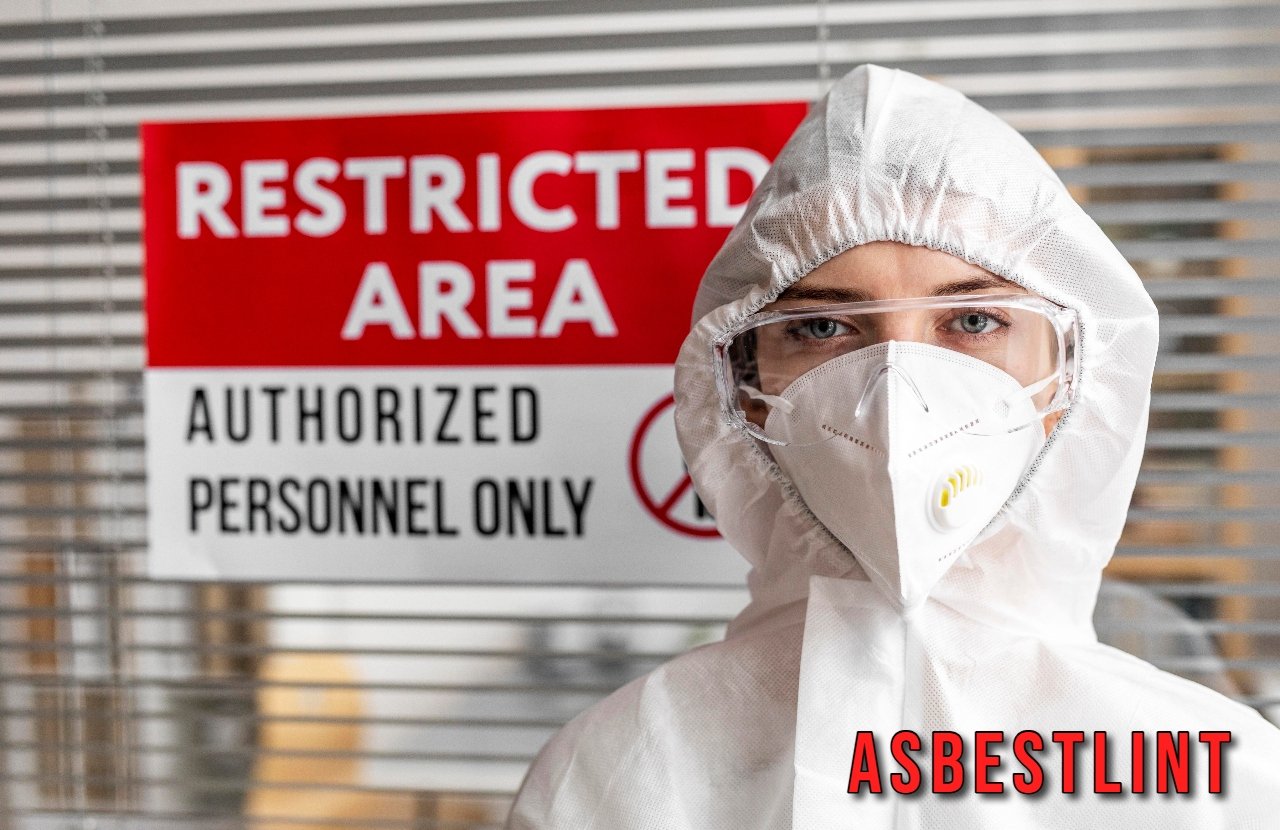Health
Asbestlint: Hidden Dangers and Safer Alternatives

Few materials in modern history carry as heavy a legacy as asbestlint. Once hailed as a miracle fiber for its fire resistance and durability, it quietly entered countless homes, factories, and public buildings. But what was once considered a protective material has revealed itself to be a hidden threat to both health and the environment.
Understanding asbestlint is not just about its chemical makeup. It’s about acknowledging the risks it poses, learning from history, and exploring safer, sustainable alternatives. While industries have moved away from it, traces remain in buildings, equipment, and even soil, demanding careful management.
What is Asbestlint
Asbestlint is a fibrous material derived from asbestos. Known for its resistance to heat and corrosion, it was widely used in construction and manufacturing. Its strong fibers made it ideal for insulation, roofing, fireproofing, and industrial applications.
You Might Also Like: Doctiplus
The problem lies in its microscopic fibers. When disturbed, these particles become airborne and, if inhaled, can lodge in the lungs, leading to severe health problems. This dual nature—useful yet dangerous—makes asbestlint a critical topic of concern.
Historical Background
The use of asbestos dates back centuries, but asbestlint gained prominence during the industrial revolution. Factories relied on it for machinery insulation, while homes embraced it for walls and ceilings. By the mid-20th century, it was everywhere—from schools to ships.
Unfortunately, awareness of its dangers came late. By the time regulations emerged, millions had already been exposed, leaving a lasting health crisis.
Industrial Applications
Asbestlint found its way into numerous sectors:
- Construction: insulation boards, tiles, roofing sheets.
- Shipbuilding: fireproof materials for cabins and engine rooms.
- Manufacturing: brake linings, cement products, gaskets.
- Public buildings: schools, hospitals, offices.
Its widespread presence means that even today, many old buildings still contain remnants of asbestlint.
Health Risks of Asbestlint
The dangers of asbestlint are now well-documented. Inhaling fibers can cause:
- Asbestosis: scarring of lung tissue.
- Mesothelioma: a rare and aggressive cancer.
- Lung cancer: significantly increased risk.
- Chronic respiratory issues: coughing, wheezing, breathlessness.
The worst part is the delayed onset. Symptoms may take decades to appear, leaving many unaware until it’s too late.
Environmental Risks
Asbestlint doesn’t just harm individuals; it affects ecosystems. Improper disposal contaminates soil and water. When fibers break down, they can remain in the environment for decades, continuing to pose risks to humans and wildlife alike.
How Exposure Happens
People can encounter asbestlint in multiple ways:
- Workplace exposure: construction workers, miners, shipbuilders.
- Household exposure: during renovation of old homes.
- Public exposure: in aging schools, offices, or public facilities.
Even family members of workers faced secondary exposure from contaminated clothing.
Recognizing Asbestlint
Identifying asbestlint isn’t easy. To the untrained eye, it looks like ordinary insulation or tile. Professional testing is often required. Methods include:
- Laboratory analysis of samples.
- Air quality monitoring in affected spaces.
- Visual inspection by certified experts.
Laws and Regulations
Most developed countries have banned or heavily restricted asbestlint. Agencies like OSHA (USA) and the European Union enforce strict safety standards. However, some nations still mine and export it, raising global concerns.
Safer Handling Practices
If you suspect the presence of asbestlint, never attempt DIY removal. Instead:
- Hire licensed removal experts.
- Use protective clothing and respirators.
- Seal and label waste properly.
- Ensure adequate ventilation during handling.
Medical Insights
Doctors recommend regular screenings for those exposed to asbestlint. Symptoms such as persistent cough or chest pain require immediate evaluation. Imaging scans and biopsies help confirm diagnoses. Treatments vary from medication and oxygen therapy to advanced surgeries in cancer cases.
Asbestlint in Homes
Old homes built before the 1990s often contain asbestlint. Common spots include roofing, floor tiles, and insulation. Renovating such properties requires certified professionals to ensure safety.
Safer Alternatives
Thankfully, many eco-friendly alternatives exist today:
- Cellulose insulation made from recycled paper.
- Fiberglass for heat resistance.
- Mineral wool as a fireproof option.
- Silica-based materials for industrial use.
These provide durability without endangering health.
Case Studies
Entire communities have suffered due to asbestlint exposure. Towns near mines saw widespread illness, while schools discovered hazardous materials in classrooms. On the positive side, removal projects have transformed buildings into safe spaces again.
Economic Impact
The legacy of asbestlint is costly. Governments spend billions on cleanup, while healthcare systems face mounting expenses treating related illnesses. Property owners also bear high removal costs, adding to the burden.
Myths About Asbestlint
- “It’s safe if undisturbed”: While partially true, aging materials can release fibers unexpectedly.
- “It’s banned everywhere”: Not all countries have outlawed it.
- “Only workers are at risk”: Families and bystanders can also suffer exposure.
Role of Governments
Governments worldwide continue to address asbestlint dangers through bans, safety guidelines, and awareness campaigns. Programs for victims and funding for cleanup highlight the seriousness of the issue.
Technology’s Role
Advancements in technology offer hope. Improved testing kits, robotic removal systems, and safer disposal methods are reducing risks.
Disposal Methods
Safe disposal involves sealing asbestlint in airtight containers, transporting it to specialized facilities, and preventing contamination during transit. Recycling is rare but being researched.
Public Awareness
Educating the public remains crucial. Workshops, training programs, and community initiatives help people recognize risks and respond appropriately.
Future Without Asbestlint
The world is steadily moving toward sustainable construction. Eco-friendly materials promise a safer future, ensuring that asbestlint remains a cautionary tale rather than an ongoing threat.
Global Perspective
Some countries, like Canada and Australia, have banned asbestlint entirely. Others still use or export it, raising ethical and environmental questions. Global cooperation is essential to end its use.
Support for Victims
Victims of exposure often need medical, emotional, and financial support. Advocacy groups, charities, and legal bodies fight for compensation and awareness.
Conclusion
Asbestlint teaches us a vital lesson: not all innovations are safe. While once celebrated, it now serves as a reminder of the importance of health and environmental responsibility. By phasing it out and embracing alternatives, we can protect future generations.
FAQs
What is asbestlint used for?
It was widely used in insulation, roofing, and fireproofing.
Is asbestlint banned worldwide?
No, while many countries banned it, some still allow use or export.
How can I tell if my home has asbestlint?
Professional testing is the safest way to confirm.
What should I do if I find asbestlint?
Avoid touching it and contact licensed removal experts.
What diseases are linked to asbestlint?
It’s associated with asbestosis, lung cancer, and mesothelioma.
Are there safe alternatives to asbestlint?
Yes, materials like cellulose, fiberglass, and mineral wool are safe replacements.

 Music6 months ago
Music6 months ago[Album] 安室奈美恵 – Finally (2017.11.08/MP3+Flac/RAR)

 Music6 months ago
Music6 months ago[Album] 小田和正 – 自己ベスト-2 (2007.11.28/MP3/RAR)
- Music6 months ago
[Album] back number – ユーモア (2023.01.17/MP3/RAR)
- Music6 months ago
[Single] tuki. – 晩餐歌 (2023.09.29/Flac/RAR)

 Music6 months ago
Music6 months ago[Album] 米津玄師 – Lost Corner (2024.08.21/MP3 + Flac/RAR)
- Music6 months ago
[Single] ヨルシカ – 晴る (2024.01.05/MP3 + Hi-Res FLAC/RAR)

 Music6 months ago
Music6 months ago[Album] Taylor Swift – The Best (MP3 + FLAC/RAR)

 Music6 months ago
Music6 months ago[Album] ぼっち・ざ・ろっく!: 結束バンド – 結束バンド (2022.12.25/MP3/RAR)












